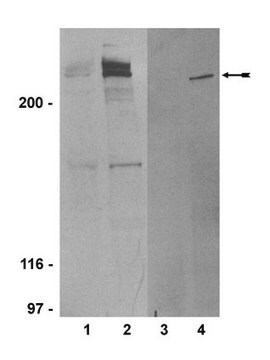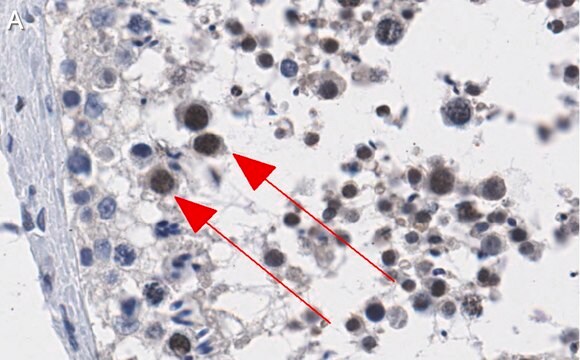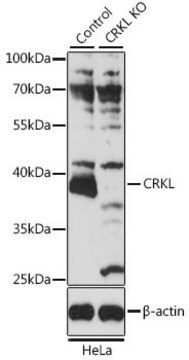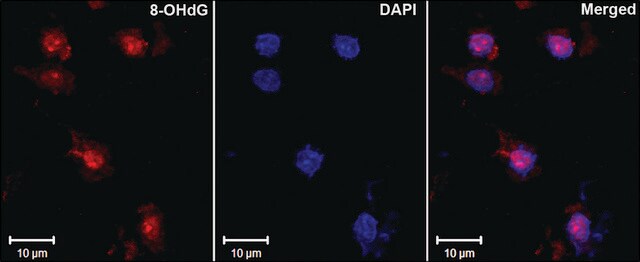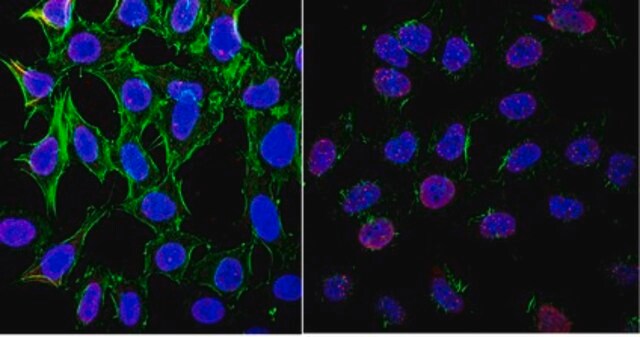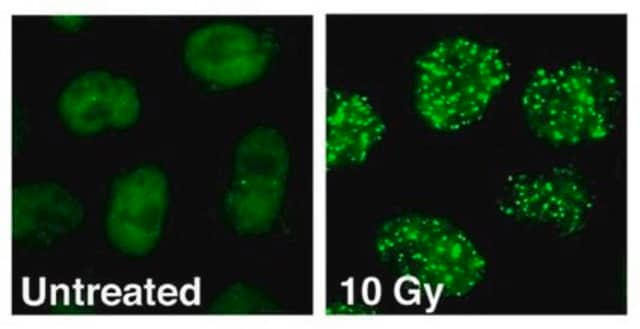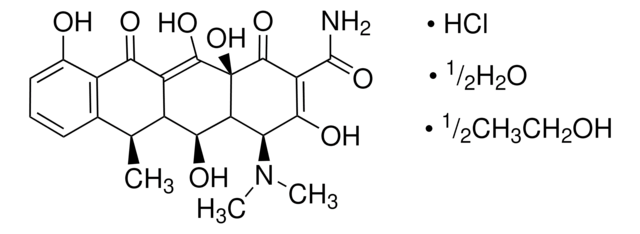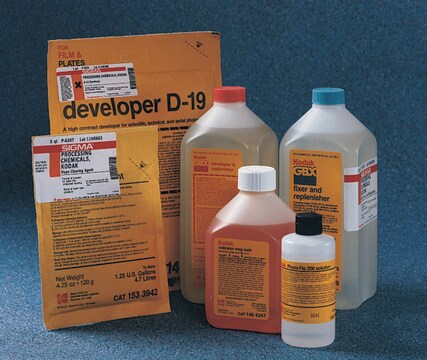일반 설명
We are committed to bringing you greener alternative products, which adhere to one or more of The 12 Principles of Green Chemistry.This antibody is Preservative-free, produced without the harm or sacrifice of animals and exceptionally stable to allow for ambient shipping and storage if needed and thus aligns with "Waste Prevention", "Designing Safer Chemicals" and "Design for Energy Efficiency".
Click here for more information.
ZooMAb antibodies represent an entirely new generation of recombinant monoclonal antibodies.
Each ZooMAb antibody is manufactured using our proprietary recombinant expression system, purified to homogeneity, and precisely dispensed to produce robust and highly reproducible lot-to-lot consistency. Only top-performing clones are released for use by researchers. Each antibody is validated for high specificity and affinity across multiple applications, including its most commonly used application. ZooMAb antibodies are reliably available and ready to ship when you need them.
Learn more about ZooMAb here.특이성
Clone 1E19 is a ZooMAb rabbit recombinant monoclonal antibody that specifically detects human ATM phosphorylated on serine 1981.
면역원
KLH-conjugated linear peptide corresponding to 15 amino acids surrounding phosphoserine 1981 from the C-terminal half of human ATM.
애플리케이션
Anti-p-ATM (Ser1981), clone 1E19 ZooMAb, Cat. No. ZRB1370, a Rabbit monoclonal antibody that targets p-ATM (Ser1981) and is tested in Affinity Binding, Immunohistochemistry, Peptide Inhibition Assay, and Western Blotting.
Immunocytochemistry Analysis: A 1:100 dilution from a representative lot detected p-ATM (Ser1981) in HeLa cells treated with camptothecin (10 mM; 4 h)
Immunohistochemistry (Paraffin) Analysis: A 1:100 dilution from a representative lot detected p-ATM (Ser1981) in human breast cancer tissue sections.
Peptide Inhibition Assay: Target band detection in lysate from UV treated HeLa cells was prevented by pre-blocking of a representative lot with the phosphor-ATM peptide, but not with the corresponding non-phosphopeptide.
Analysis: A 1:1,000 dilution from a representative lot was used with HeLa cells treated with UV light for peptide block analysis.
Affinity Binding Assay: A representative lot of this antibody bound human phosphorylated ATM (pSer1981) with a KD of 8.26 x 10-8 in an affinity binding assay.
Note: Actual optimal working dilutions must be determined by end user as specimens, and experimental conditions may vary with the end user.
표적 설명
Serine-protein kinase ATM (UniProt: Q13315; also known as EC:2.7.11.1, Ataxia telangiectasia mutated, A-T mutated, ATM) is encoded by the ATM gene (Gene ID: 472) in human. ATM is a member of the phosphatidyl inositol 3-kinase-like kinase (PIKK) family that is activated in response to double-strand breaks (DSBs) induced by ionizing radiation and radiomimetic drugs. It is usually found localized near the damaged regions within several minutes indicting its damage-sensing role. After their recruitment to sites of DNA damage, ATM phosphorylate several intracellular substrates, including Chk1 and Chk2 that in turn target other proteins to induce cell-cycle arrest and allow DNA repair to proceed. In normal cells ATM is present as inert dimers or multimers, which dissociate into highly active ATM monomers following any DNA damage. During activation, ATM undergoes autophosphorylation on Ser1981 and the activated ATM undergoes additional phosphorylations and acetylation reactions. Defects in ATM signaling are commonly seen in human cancer cells and they affect the sensitivity of tumors to chemo- and radiation therapies. Mutations in ATM gene are known to cause Ataxia telangiectasia that is characterized by progressive cerebellar ataxia, dilation of the blood vessels in the conjunctiva and eyeballs, immunodeficiency, growth retardation and a strong predisposition to cancers. Defects in ATM may contribute to T-cell acute lymphoblastic leukemia and T-prolymphocytic leukemia. This ZooMAb recombinant monoclonal antibody, generated by our propriety technology, offers significantly enhanced specificity, affinity, reproducibility, and stability over conventional monoclonals. (Ref.: Shiloh, Y., and Ziv, Y. (2013). Nat. Rev. Mol. Cell Biol. 14(4); 197-210).
물리적 형태
Purified recombinant rabbit monoclonal antibody IgG, lyophilized in PBS with 5% Trehalose, normal appearance a coarse or translucent resin. Contains no biocide or preservatives, such as azide, or any animal by-products. Larger pack sizes provided as multiples of 25 μL.
저장 및 안정성
Recommend storage of lyophilized product at 2-8°C; Before reconstitution, micro-centrifuge vials briefly to spin down material to bottom of the vial; Reconstitute each vial by adding 25 μL of filtered lab grade water or PBS; Reconstituted antibodies can be stored at 2-8°C, or -20°C for long term storage. Avoid repeated freeze-thaws.
법적 정보
ZooMAb is a registered trademark of Merck KGaA, Darmstadt, Germany
면책조항
Unless otherwise stated in our catalog or other company documentation accompanying the product(s), our products are intended for research use only and are not to be used for any other purpose, which includes but is not limited to, unauthorized commercial uses, in vitro diagnostic uses, ex vivo or in vivo therapeutic uses or any type of consumption or application to humans or animals.

